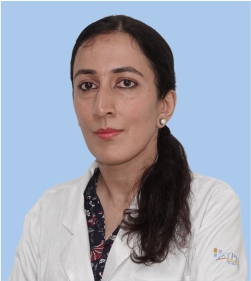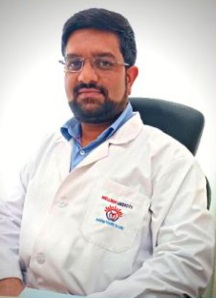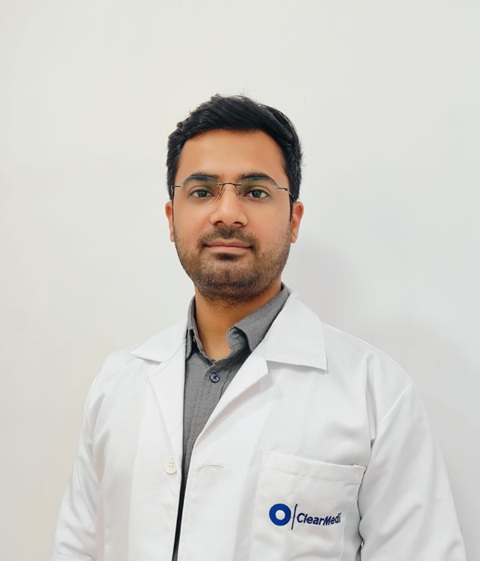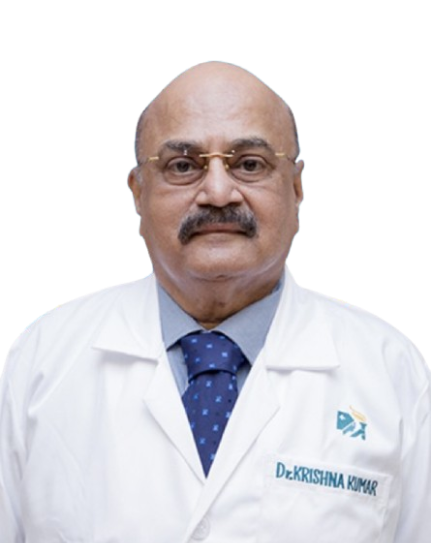FESS Surgery - Procedure Steps, Complications, Recovery
Dr. Aman Priya Khanna

Treatment Duration
60 Minutes
------ To ------90 Minutes
Treatment Cost
₹ 45,000
------ To ------₹ 1,20,000

Table of Contents
- What is functional endoscopic sinus surgery?
- Need for Functional Endoscopic Sinus Surgery
- Benefits of FESS Surgery
- Before and On the Day of Functional Endoscopic Sinus Surgery
- Functional Endoscopic Sinus Surgery Procedure
- After FESS Surgery and Recovery
- Risks and Complications of FESS Surgery
- Risks of Delaying FESS Surgery
- Cost of FESS Surgery
- Takeaway
According to a study by Kashyap et al., 2021, 12.5% of Indians suffer from chronic sinusitis, a condition more prevalent than diabetes or asthma. 1 FESS surgery offers an efficient solution for those without relief through traditional treatments. It aims to enhance sinus function and overall well-being.
Sinus surgery, particularly FESS, improves nasal airflow and reduces blockages. But how is the procedure performed? And what can you expect during recovery? Continue reading to find out.
Procedure Name | Functional endoscopic sinus surgery |
Alternative Name | Endoscopic sinus surgery |
Conditions Treated | Sinusitis, nasal polyps and tumours, nasal obstruction |
Benefits of the Procedure | Minimally invasive, shorter recovery time, surgical accuracy |
Treated By | ENT specialist |
You can check Functional Endoscopic Sinus Surgery (FESS) Cost here.
What is functional endoscopic sinus surgery?
Functional endoscopic sinus surgery, FESS full form, is a minimally invasive procedure that treats chronic sinus infections. It also manages sinus-related disorders, such as nasal polyps and deviated septum.
During surgery, an endoscope (a thin, flexible tube with a light and a camera on the end) is inserted into the nasal passages. This avoids the need for incisions in or around the nose.
The “functional” aspect in its name refers to the following goals of the procedure:
Decrease the frequency and intensity of sinus infections
Alleviate symptoms of sinusitis
Enhance the drainage of the sinuses
Improve airflow through the nasal passages
Improve the sense of smell
Anatomy and Physiology of Sinuses
The sinuses are hollow cavities in the skull that produce mucous to moisturise the nose and protect it from pollutants, dust, and dirt. It also helps to regulate the temperature and humidity of the air reaching the lungs.
The four pairs of sinuses are as follows:
Maxillary Sinuses: The largest sinus, located on both sides of the nose, near the cheekbones
Frontal Sinuses: Found above the eyes, in the forehead bone
Ethmoid Sinuses: Located near the eyes on each side of the nasal bridge
Sphenoid Sinuses: Situated deep in the skull behind the eyes
Functional Endoscopic Sinus Surgery (FESS) Videos by HexaHealth
Expert Doctors (10)
NABH Accredited Hospitals (10)


Need for Functional Endoscopic Sinus Surgery
FESS surgery is recommended for patients with sinus conditions that do not improve with medical treatments. It is needed for individuals who experience symptoms like pain, nasal congestion, breathing difficulty, and loss of smell due to the following conditions:
Sinusitis (a chronic or persistent inflammation of the sinuses)
Nasal polyps (non-cancerous growths in the lining of the sinuses or nasal passage)
Nasal blockage or obstruction (can be caused by a deviated septum, sinusitis, nasal polyps, allergies, etc.)
Nasal and sinus tumours (cancerous growths that occur in the nose or sinuses)
Benefits of FESS Surgery
FESS surgery is a minimally invasive procedure with various benefits, making it a preferred method for treating chronic sinusitis. Between 80% and 90% of individuals who undergo this surgery report that it effectively resolved their condition. The advantages include:
Reduced risk of scarring
Less tissue damage
Precise visualisation and surgical accuracy
Shorter recovery time (most individuals can return to routine activities within two weeks)
Before and On the Day of Functional Endoscopic Sinus Surgery
Patients meet an ENT surgeon to prepare for their sinus procedure. The specialist gives them specific instructions to be followed before and on the day of surgery. These include:
Before FESS Surgery
For patients who smoke, preparation begins 3-4 weeks before FESS surgery, as they will be told to quit smoking. Other arrangements that need to be made before the procedure are as follows:
Parameters | Prerequisites |
Pre-op Assessments |
|
Risk Evaluation |
|
Medications | Stopping blood thinning medications two weeks before surgery |
Anaesthesia Selection | General |
Fasting | 6-8 hours before surgery |
On the Day of FESS Surgery
Patients should arrive at the hospital or surgical facility well before their scheduled time on the day of the FESS procedure. This helps them handle any last-minute administrative tasks. They will be prepped for surgery, which includes the following:
Parameters | Prerequisites |
Consent | Mandatory |
Physical Evaluation | Vitals check-up (heart rate, blood pressure, breathing, etc.) |
IV Line | Yes |
Patient Position | Reverse Trendelenburg (a supine position inclined at a 20-degree angle) |
Functional Endoscopic Sinus Surgery Procedure
The FESS surgery is performed under general anaesthesia, so the patient is asleep. It takes about two hours to complete and involves the following steps:
Nasal Endoscopy: The surgeon inserts an endoscope into the nostrils. It helps visualise the sinus passages.
Surgical Intervention: Using specialised instruments alongside the endoscope, the surgeon carefully removes obstructive tissue, polyps, and other blockages within the sinus pathways.
Restoration of Drainage: The main objective is to restore natural drainage and function of the sinuses. This is done by clearing the blocked passages and correcting anatomical issues, such as a deviated septum.
Closure: Since FESS is minimally invasive, there are no external incisions and do not require sutures. The endoscope and instruments are removed once the procedure is completed.
After FESS Surgery and Recovery
It is expected to experience some bleeding, pain, and fatigue for up to a week after the operation. However, it can often be managed with the instructions provided by the doctor. The guidelines for a smooth sinus surgery recovery are as follows:
Recovery in the Hospital
Most patients can return home on the same day of the procedure. An overnight hospital stay is required in cases where individuals experience bleeding during the surgery. They can expect the following in the hospital:
After FESS surgery, patients will be closely monitored in the recovery room until they wake up from anaesthesia.
Medical staff will check their vital signs, such as blood pressure and heart rate, and monitor their condition for immediate complications.
The healthcare team will provide pain medication to help manage any discomfort.
If a nasal packing (sterile material in the nasal passages to control bleeding) is placed, it will be removed the following day.
The individual will need someone to drive them home.
At-Home Recovery
Most patients can expect to feel normal after sinus surgery in a month or two. They can return to school and work within a week and resume their regular activities in two weeks. During this time, they should follow these guidelines:
Take prescribed pain medications. Do not take aspirin or non-steroidal anti-inflammatory (NSAID) medications for two weeks after surgery.
The doctor may recommend saline nasal irrigation twice daily to help keep the nasal passages clean and moist.
Use nasal saline mist sprays every two to three hours after FESS.
Avoid blowing the nose for seven days. If a patient needs to sneeze, they should keep their mouth open or sneeze in their sleeve.
Refrain from strenuous activities and heavy lifting for ten days post-surgery.
First Follow-Up Appointment
The first follow-up visit is scheduled between four and eight weeks after the surgery. During the visit, the doctor cleans the fluid and blood from the nose and sinuses. They also check on the patient’s progress and monitor for any complications.
Risks and Complications of FESS Surgery
Functional endoscopic sinus surgery is widely regarded as a safe and effective treatment. According to a study by Suzuki et al., the complication rate after the procedure is 0.5%. These risks may include:
Excessive bleeding
Infection
Changes in the sense of smell
Tearing eyes
Vision problems
Cerebrospinal fluid leak (fluid surrounding the brain)
When to consult a doctor?
After undergoing FESS surgery, patients should closely monitor their recovery for any signs of complications. The following are instances when they should immediately consult their doctor:
Fever above 101℉
The drainage of clear, watery fluid from the nose
Any sudden changes in vision or swelling around the eyes
Intense headache or neck stiffness
Continuous, heavy nasal bleeding that doesn’t improve with decongestant spray use
Risks of Delaying FESS Surgery
Delaying FESS, when recommended, can lead to more complex conditions that are harder to manage and treat effectively. These include:
Meningitis (inflammation of the area that surrounds the brain and spinal cord)
Intracranial abscess (a collection of pus in the brain caused by an infection)
Cavernous sinus thrombosis (a blood clot in the cavernous sinuses)
Facial cellulitis (a common bacterial skin infection)
Osteomyelitis (infections of the bones)
Orbital cellulitis (an infection of the tissues surrounding the eyes)
Blindness (infection may spread to the orbital area, affecting vision)
Cost of FESS Surgery
The sinus surgery cost in India varies significantly depending on multiple factors. The price of the endoscopic procedure starts at ₹ 45,000 and goes up to ₹ 1,20,000. The average expense is about ₹ 80,000.
Procedure Name | Approximate Cost Range |
Functional Endoscopic Sinus Surgery | ₹ 45,000 to ₹ 1,20,000 |
Note: The figures mentioned above are estimates. For accurate pricing details of the procedure, patients are advised to consult HexaHealth experts.
The factors that affect this cost include:
Surgeon’s Expertise: The reputation of the surgeon performing the surgery can significantly affect costs. More experienced specialists typically charge higher fees.
Hospital or Surgical Facility: Private hospitals are costlier than public centres due to the higher quality of amenities and services provided.
Geographic Location: Metropolitan areas are more expensive than smaller towns as the overall costs of living and operational expenses are higher.
Other Treatments: If additional procedures, such as septoplasty or turbinate reduction, are needed alongside FESS, they will increase the overall expenditure.
Insurance Coverage: The extent to which insurance covers the procedure can also affect the patient’s out-of-pocket costs.
Takeaway
FESS surgery offers a minimally invasive solution for treating chronic sinus issues. It enhances the patient’s quality of life by significantly improving symptoms like congestion and facial pain. The high success rate of the procedure and quicker recovery make it a practical choice for many.
If you or your loved ones are considering sinus surgery, HexaHealth can be your best choice. We help you connect with expert ENT specialists and well-equipped medical facilities. Our team offers dedicated support, from booking appointments to managing aftercare. So, what are you waiting for? Contact us TODAY!
Frequently Asked Questions (FAQ)
What is FESS surgery?
FESS surgery is a minimally invasive procedure used to clear blocked sinuses. It alleviates chronic sinusitis symptoms, improves drainage, and enhances airflow through the nasal passages.
What is the full form of FESS?
The FESS full form is functional endoscopic sinus surgery. It utilises endoscopes and other surgical tools to access and treat the sinuses without external incisions.
What are the indications for FESS?
FESS surgery is needed for patients with chronic sinus conditions unresponsive to medical treatments. The indications for the procedure include:
Sinusitis
Nasal polyps
Sinus and nasal tumours
Deviated septum contributing to sinus blockages
How is FESS different from traditional sinus surgery?
FESS is different from traditional sinus surgery because it is less invasive. It uses endoscopes to operate directly within the nasal passages. This results in less tissue damage, reduced bleeding, and quicker recovery times.
What is the procedure for FESS?
The procedure for FESS involves inserting an endoscope through the nostrils to view and access the sinus passages. Specialised instruments are then used to remove obstructions, correct structural issues, and restore proper sinus drainage.
What are the potential complications of FESS?
Complications after FESS are rare. However, like any surgical procedure, certain risks can occur. These include the following:
Bleeding
Infection
Decreased sense of smell
Loss of vision
Cerebrospinal fluid leak
What is the recovery process after FESS surgery?
It is important to follow the doctor’s instructions for a smooth recovery after FESS surgery. These guidelines include:
Managing mild pain and nasal congestion with medications and nasal sprays
Performing saline nasal irrigations to promote healing
Avoiding blowing the nose for a week
Attending follow-up appointments to monitor progress
How long does it take to recover from FESS surgery?
Sinus surgery recovery takes about two weeks for initial healing. Full recovery and the complete resolution of symptoms often occur within 1-2 months as inflammation subsides.
Is nasal endoscopy necessary for FESS?
Yes, nasal endoscopy is necessary for FESS. It allows surgeons to visualise the internal sinus structures, identify problem areas, and guide precise surgical instruments during the procedure.
What is the success rate of FESS in treating sinus issues?
The success rate of FESS in treating sinus issues is high. However, the rates can differ depending on the patient’s condition and the disease treated. According to a study by P Achar et al., FESS surgery has a success rate of 80-90% in treating chronic rhinosinusitis.
How much does FESS surgery cost?
The sinus surgery cost can range between ₹ 45,000 to ₹ 1,20,000, depending on location, type of facility, and surgeon’s fees. However, these prices are approximate. Patients should consult HexaHealth experts for up-to-date expenses.
Can FESS surgery be done under local anaesthesia?
Yes, selected FESS cases, particularly less extensive procedures, can be performed under local anaesthesia. This approach may eliminate complications related to general anaesthesia and facilitate quicker patient discharge.
What are the post-operative care instructions for FESS patients?
Before discharge, the ENT specialist will provide various post-operative care instructions to ensure positive outcomes and a smooth recovery. These are as follows:
Saline nasal irrigations twice every day
Avoiding blowing the nose forcefully
Refraining from strenuous activities
Attending all follow-up visits
When should I expect to see improvements in my sinus symptoms after FESS surgery?
Improvements in sinus symptoms after FESS surgery can be noticed once the swelling decreases and tissues heal. Full benefits and recovery may take 1-2 months, depending on individual healing and adherence to post-operative care instructions.
Is functional endoscopic sinus surgery covered under insurance?
Functional endoscopic sinus surgery is covered under insurance as it is deemed medically necessary. However, coverage can vary. Therefore, patients are advised to consult HexaHealth professionals to understand the specifics of what their plan covers.
Is FESS surgery safe?
FESS surgery is considered safe, with a risk of major complications in only 0.5% of cases. It minimises tissue damage and promotes faster recovery compared to traditional sinus surgeries.
Is a FESS procedure painful?
FESS procedure is generally not painful due to the use of anaesthesia during the surgery. Post-operative discomfort is mild and manageable with prescribed pain relievers and tends to resolve within a week.
Is FESS a major surgery?
FESS is not considered major surgery. It is a minimally invasive outpatient procedure that usually allows patients to return home the same day.
Does FESS cure sinusitis?
FESS does not cure sinusitis. However, it effectively treats the structural causes of sinusitis, such as blockages of the sinus passages. This significantly improves symptoms and quality of life in about 80% to 90% of patients.
Can sinusitis come back after treatment?
While FESS can significantly reduce the symptoms and recurrence of sinusitis by improving sinus drainage and airflow, sinusitis can come back. This is especially true if underlying factors such as allergies or nasal polyps are not managed.
Functional Endoscopic Sinus Surgery (FESS) Cost Videos
More Treatment options
References
All the articles on HexaHealth are supported by verified medically-recognized sources such as; peer-reviewed academic research papers, research institutions, and medical journals. Our medical reviewers also check references of the articles to prioritize accuracy and relevance. Refer to our detailed editorial policy for more information.
- Kashyap GC, Vishwakarma D, Singh SK. Prevalence and Risk Factors of Sinus and Nasal Allergies among Tannery Workers of Kanpur City. Sinusitis. 2021 Jan 11;5(1):5–16.

- Hecht M. Sinuses Anatomy, Pictures, and Health [Internet]. Healthline. Healthline Media; 2015.

- Functional Endoscopic Sinus Surgery (FESS): Procedure & Recovery [Internet]. Cleveland Clinic.

- Endoscopic Sinus Surgery [Internet]. www.hopkinsmedicine.org.

- Australia H. Endoscopic sinus surgery [Internet]. www.healthdirect.gov.au. 2023 [cited 2024 Apr 20].

- Functional Endoscopic Sinus Surgery (FESS) Ear, Nose and Throat Department Patient Information [Internet].

- Saxena A, Nekhendzy V. Anesthetic considerations for functional endoscopic sinus surgery: a narrative review. Journal of Head & Neck Anesthesia. 2020 Apr 21;4(2):e25–5.

- Achar P, Duvvi S, Kumar BN. Endoscopic dilatation sinus surgery (FEDS) versus functional endoscopic sinus surgery (FESS) for treatment of chronic rhinosinusitis: a pilot study. Acta otorhinolaryngologica Italica : organo ufficiale della Societa italiana di otorinolaringologia e chirurgia cervico-fac

- Sinusitis: Surgery [Internet]. National Jewish Health. [cited 2024 Apr 20].

Last Updated on: 5 July 2024
Reviewer

Dr. Aman Priya Khanna
MBBS, DNB General Surgery, FMAS, FIAGES, FALS Bariatric, MNAMS General Surgery
13 Years Experience
Dr Aman Priya Khanna is a highly experienced and National Board–Certified Laparoscopic, GI, and Bariatric Surgeon with over 13 years of clinical expertise.
He is widely regarded as one of the best bariatric surgeons in Ahmedabad, ...View More
Author

Sparshi Srivastava
B.Tech Biotechnology (Bansal Institute of Engineering and Technology, Lucknow)
2 Years Experience
An ardent reader, graduated in B.Tech Biotechnology. She was previously associated with medical sciences secondary research and writing. With a keen interest and curiosity-driven approach, she has been able to cont...View More
Functional Endoscopic Sinus Surgery (FESS) in Top Cities
Functional Endoscopic Sinus Surgery (FESS) Cost in Top Cities
Latest Health Articles
























